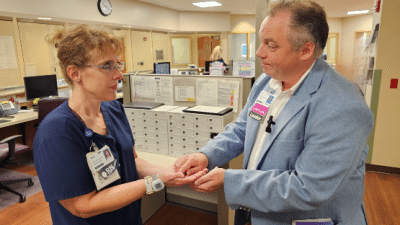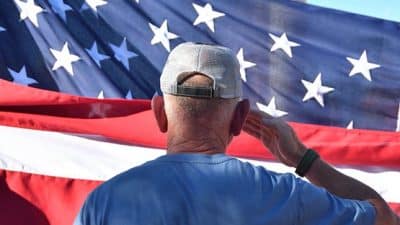
The National Institutes of Health have awarded researchers at the UVA School of Medicine and University of South Carolina a $3.37 million grant to determine if online behavioral weight-management programs for rural residents can be improved by adding a human touch.
Online obesity programs have typically failed to yield the same benefits as in-person programs, the researchers note, so they will test three approaches to add human involvement. More than 600 volunteers will be enrolled in a core online 24-week weight-loss program and randomly assigned to receive one of two forms of feedback on their self-monitoring efforts. Participants will also potentially receive additional components including weekly group video sessions and individual coaching calls.
The goal is to help residents of rural areas, where in-person weight-loss programs can be scarce, manage their weight and fight the obesity epidemic that has swept America.
“Weight loss of as little as 5 percent to 7 percent can reduce obesity-associated co-morbidities,” UVA public health researcher Dr. Becca Krukowski, one of the principal investigators, said. “Although lifestyle interventions successfully produce weight losses of this magnitude, access to weight management programs is limited in rural areas. This study will examine how digital interventions can be optimized for delivering weight loss programs to rural populations.”
More than 130 million Americans are overweight or obese. Individuals living in rural areas experience significantly higher rates of obesity and chronic illnesses associated with obesity. Many rural areas are also beset by an increasing lack of access to healthcare resources.
Krukowski, a member of UVA’s Department of Public Health Sciences, notes that some evidence exists that adding a human component to digital obesity-treatment programs can improve their effectiveness. She hopes her new trial will offer answers on the best “package” of treatment components.
For the next three years, she and her collaborators will enroll and provide the iREACH program for a total of 616 men and women and determine which approach or which combination of approaches is most effective at promoting weight loss and subsequent weight maintenance. Factors that contribute to weight loss success, such as social support, accountability and problem solving will be considered. They will also consider variables such as sex, race/ethnicity and age, as well as the costs of the intervention components.
The iREACH program just started recruiting for the first wave, which will start right after the new year — perfect timing for New Year’s resolutions related to improving health.
Krukowski and her team hope their research will lead to optimized online weight-loss programs that will be more accessible to rural residents than in-person programs. The research results will inform public health policy decisions such as whether the programs should be covered by Medicare, Medicaid and other health insurance companies.
“The iREACH study is an exciting opportunity for rural residents to have access to a cutting-edge behavioral weight loss program and also contribute to science,” Krukowski said.










